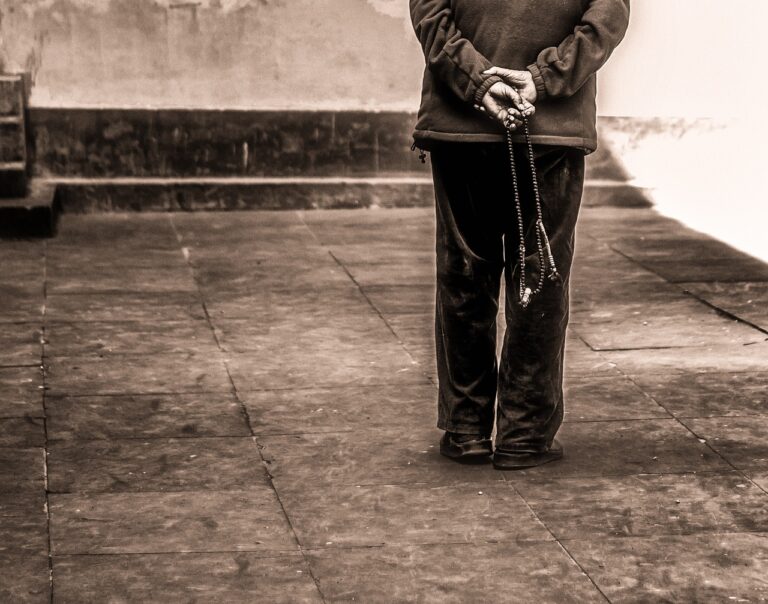Palliative Care Singapore: Providing Comfort, Dignity, and Compassionate Support
Understanding Palliative Care
Palliative care in Singapore focuses on enhancing the quality of life for patients facing serious or life-limiting illnesses. It goes beyond just medical treatment—it’s about managing pain, relieving symptoms, and providing emotional, psychological, and spiritual support to both patients and their families. Unlike curative care, which aims to cure disease, palliative care emphasizes comfort and dignity, ensuring patients live as meaningfully and comfortably as possible.
Why Palliative Care Is Important
When someone is diagnosed with a chronic or terminal condition such as cancer, heart failure, or advanced dementia, the journey can be physically painful and emotionally challenging. Palliative care offers comprehensive support that addresses these challenges holistically.
By focusing on symptom management and emotional well-being, Palliative Care Singapore helps patients maintain a sense of control, independence, and peace during difficult times.
Who Can Benefit from Palliative Care
Many people mistakenly believe palliative care is only for those nearing the end of life. In reality, it can begin at any stage of a serious illness—right from diagnosis.
Patients who can benefit include those suffering from:
-
Cancer or advanced organ failure
-
Neurodegenerative conditions like Parkinson’s disease
-
Chronic respiratory diseases
-
End-stage renal failure
-
Frailty due to old age
Families also benefit greatly, as palliative care teams offer counselling, guidance, and emotional support throughout the caregiving journey.
Core Elements of Palliative Care in Singapore
-
Pain and Symptom Management
One of the main goals of palliative care is to relieve pain and other distressing symptoms such as breathlessness, fatigue, nausea, or anxiety. Care professionals use medications, therapies, and non-drug approaches to ensure maximum comfort. -
Emotional and Psychological Support
Illness often triggers fear, stress, and sadness. Palliative care counsellors and therapists provide emotional support to both patients and families, helping them cope with the challenges and maintain mental well-being. -
Spiritual and Social Care
Spiritual well-being is an integral part of the care process. Many patients find comfort through faith or reflection, and caregivers help facilitate these needs, regardless of religion or belief. -
Family and Caregiver Support
Families play a vital role in caregiving. Palliative care teams in Singapore offer training, respite care, and counselling to ease caregiver stress and promote family harmony. -
End-of-Life Planning
Palliative care also helps patients express their wishes regarding treatment options, preferred care settings, and end-of-life choices. This ensures dignity, autonomy, and peace of mind.
Types of Palliative Care Services in Singapore
There are several ways palliative care in Singapore is delivered, depending on the needs of patients and families:
-
Hospital-Based Palliative Care: Offered in major hospitals, where multidisciplinary teams manage symptoms and coordinate care for inpatients.
-
Home Palliative Care: Enables patients to receive medical attention and comfort in familiar surroundings.
-
Day Care Centres: Provide social engagement, therapy, and medical supervision during the day.
-
Hospice Care: Dedicated facilities offering round-the-clock support for those requiring more intensive care.
The Role of Healthcare Professionals
Palliative care in Singapore is delivered by an experienced team that may include doctors, nurses, social workers, therapists, and volunteers. Each member contributes their expertise to create a personalized care plan. The focus is not only on treating the illness but also on nurturing the person as a whole—body, mind, and spirit.
Healthcare professionals also collaborate with families to align treatment with the patient’s goals, values, and comfort preferences. This compassionate approach ensures that care remains meaningful and respectful.
Palliative Care vs Hospice Care
Though often used interchangeably, palliative care and hospice care are distinct.
Palliative care can begin at any stage of illness and run alongside curative treatment. Hospice care, on the other hand, is specifically for those nearing the end of life when curative treatments are no longer pursued.
Both share the same goal: providing comfort, dignity, and compassion.
Accessing Palliative Care Services in Singapore
Singapore has a well-developed network of public and private providers offering palliative care. Hospitals, community hospices, and organizations like the Singapore Hospice Council and HCA Hospice play vital roles in making these services accessible.
Many families also turn to private healthcare groups like Econ Healthcare, which offers specialized and compassionate care tailored to individual needs. With an emphasis on dignity and comfort, Econ Healthcare’s palliative care services in Singapore ensure that patients receive holistic, continuous support in a nurturing environment.
Cost and Government Support
Palliative care costs can vary based on the level and setting of care. In Singapore, the government offers subsidies under schemes such as MediSave, MediShield Life, and Community Health Assist Scheme (CHAS). These programs help reduce financial burdens, making palliative care accessible to more families.
Additionally, many voluntary welfare organizations and charities provide subsidized or free care for those in need.
Benefits of Early Palliative Care
Research shows that patients who receive early palliative care experience better symptom control, fewer hospital admissions, and improved emotional well-being.
Early intervention allows time to plan care preferences, manage symptoms proactively, and provide continuous emotional support to families.
For many, it also means spending quality time at home with loved ones rather than in hospital settings.
Challenges and Misconceptions
Despite the availability of quality palliative care in Singapore, misconceptions persist. Some families fear that accepting palliative care means “giving up.” In truth, it’s about improving life—not hastening death.
Palliative care empowers patients to live as actively and meaningfully as possible, even in the presence of illness. Education and awareness are key to overcoming such barriers.
The Future of Palliative Care in Singapore
As Singapore’s population ages, the demand for palliative care is expected to grow. The healthcare system continues to expand its capacity through training programs, community outreach, and integrated care models.
Technology, too, plays a role—telemedicine and digital monitoring are helping professionals provide comfort and guidance remotely. The future of palliative care in Singapore lies in collaboration, compassion, and innovation.
Conclusion
Palliative care is a vital part of Singapore’s healthcare landscape. It ensures that patients facing serious illness receive holistic support—physically, emotionally, and spiritually. Whether at home, in hospital, or in hospice, palliative care brings comfort, dignity, and peace to every stage of life’s journey.
By embracing compassionate care and open communication, families and healthcare providers together can make the final chapters of life more meaningful.
If you or your loved one is seeking palliative care in Singapore, reach out to trusted providers like Econ Healthcare for guidance, professional support, and heartfelt care.







